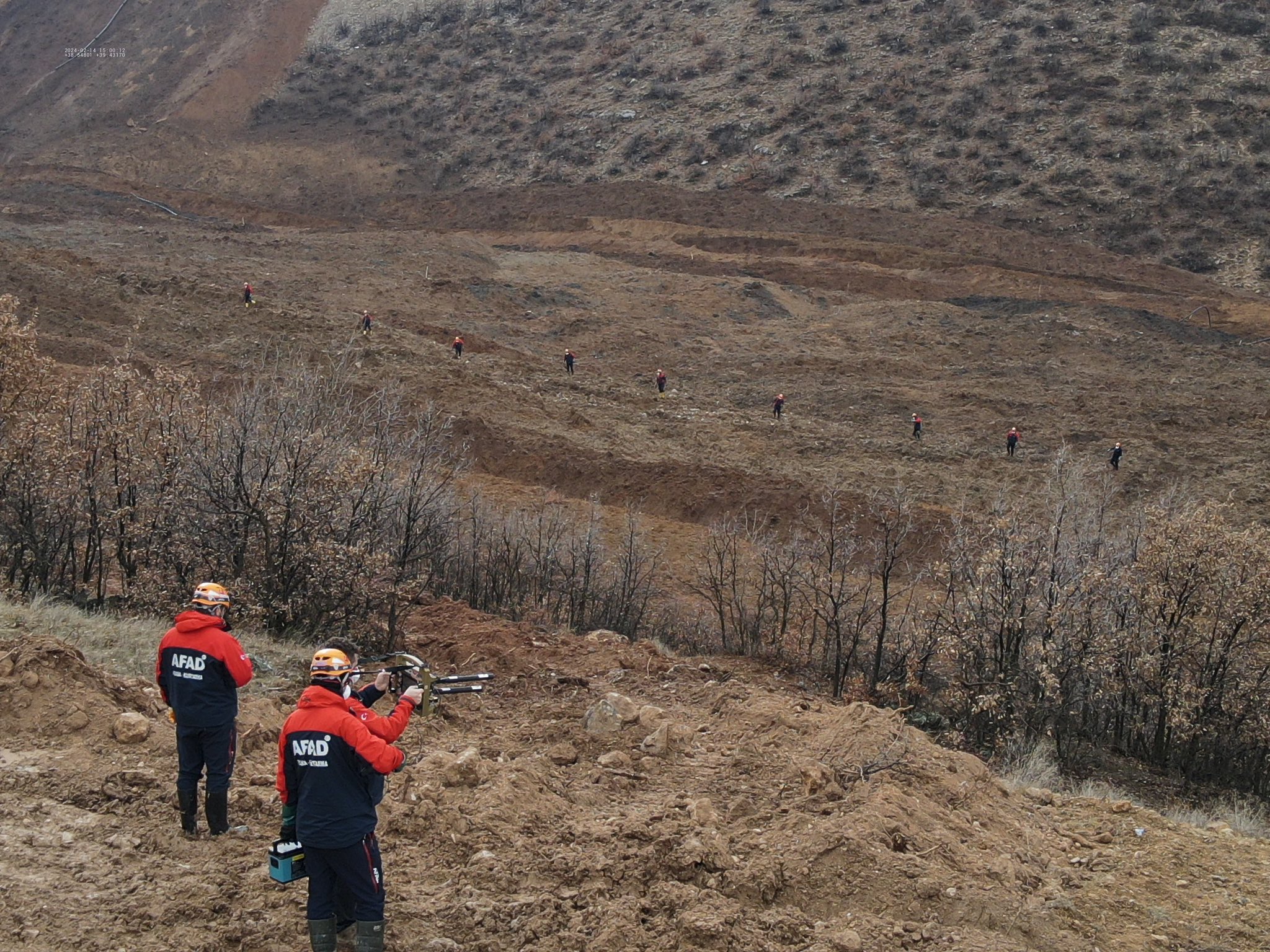What we’re watching: Weekly disaster update, February 19

We know all too well that disaster can strike anytime, anywhere in the world. Some disasters make headlines; others do not. Here at the Center for Disaster Philanthropy (CDP), we monitor the status of disasters worldwide and compile a list of the ones we’re tracking weekly, along with relevant disaster-related media coverage.
Here’s what we’re watching for the week of Feb. 19, 2024.
New or Emerging Disasters
Flooding – Oman: Flash floods lashed Oman on Monday, Feb. 12. Torrential rains claimed the lives of four people, including three children, who were swept away into a stream. Flooded roads cut off dozens of villages, and all schools were closed on Feb. 13 due to the weather conditions. The country is vulnerable to floods due to the arid nature of the region and limited drainage channels and infrastructure.
Saudi Arabia also issued severe weather warnings for its Eastern Province due to heavy rainfall and strong wind forecasts.
Landslide – Afghanistan: On Feb. 18, a fatal snow avalanche mixed with rubble swept through the Tatin valley in Afghanistan, resulting in 25 fatalities and eight injuries. Around 20 residential structures were heavily damaged, and the provincial head of information and culture indicated that the death toll may increase as search and rescue efforts begin. Ongoing heavy snowfall adds another layer of complications to rescue operations.
Snowfall this year was delayed for much of Afghanistan, and an exceptionally low level of rain has forced farmers to delay planting. Aid organizations have warned that water shortages, in addition to warmer than average winter and little snow, may worsen drought conditions. Afghanistan is experiencing its worst drought in 30 years, impacting 25 out of 34 provinces and more than 20 million people.
Landslide – Turkey: Some 800 search and rescue personnel continue their search for at least nine workers trapped in a gold mine in eastern Turkey following a massive landslide of soil containing cyanide on Feb. 13. The landslide struck the town of Ilic in the Erzincan province and on Feb. 14, authorities detained four people although no further details were shared.
The search is expected to take a very long time due to the presence of cyanide. All nine mine workers are expected to have passed away.
Oil spill – Trinidad and Tobago: Officials in Trinidad and Tobago declared a national emergency on Feb. 11 after a devastating oil spill coated at least 10 miles (15 kilometers) of Tobago’s southern coast. The spill from an unspecified capsized vessel forced at least two schools, the island’s resorts and hotels to close over health concerns. The spill, which damaged a reef and beaches, prompted nations across the Caribbean to engage in a coordinated response to contain its spread.
As much as 35,000 barrels of fuel oil may have spilled. The spill directly impacts local communities that make a living off fishing. Currently, 1,000 emergency volunteers are cleaning up the shores.
Previous/Ongoing Disasters
Complex Humanitarian Emergency – Democratic Republic of Congo (DRC): Violence has been on the rise in eastern parts of DRC for the last few weeks. Most recently, armed rebels ambushed and killed 15 people in the Ituri province on Feb. 17.
On Feb. 8, Doctors Without Borders reported at least 2,500 people were sheltering in a hospital due to an escalation in fighting. Hospitals have been overwhelmed due to insufficient supplies and necessities such as food. At least 150,000 people, including 78,000 children, fled their homes in the first week of February 2024 due to the new wave of fighting between the M23 rebel group and the Congolese army.
This comes at a time when political tensions are simmering between Rwanda and the DRC, the United Nations peacekeeping mission, MONUSCO, is set to complete its withdrawal from the country this year, and communities are still homeless from floods in December 2023 that displaced around 500,000 people.
Heat wave – Australia: High temperatures have been recorded across western, eastern and northern Australia. Temperatures reached close to 50 degrees Celsius (122 degrees Fahrenheit) in parts of the Midwest, ranking as some of the hottest temperatures recorded in Australia and the hottest temperatures recorded in the world this year.
The Bureau of Meteorology issued severe heat wave warnings, and extreme weather conditions are expected across Australia as Tropical Cyclone Lincoln made landfall. The passage caused heavy rainfall and floods across western and northern territories, causing damage, casualties and evacuations. While the cyclone has dissipated as of Feb. 17, its remnants were inland and are forecasted to continue westward over the next few days.
Australia is currently seeing a rare confluence of El Nino, the Southern Annular Mode and the Indian Ocean dipole that has left the west baking hot while the east faces devastating downpours.
Volcano – Multiple countries: As Iceland recovers from multiple volcanic eruptions in December 2023 and January 2024 that forced evacuations, cut heat and hot water for hundreds of residents, and caused road closures, volcanic activity has also been recorded across the world with varying impacts on local communities and environment.
Indonesia’s Merapi volcano erupted twice in December and January, causing more than 20 casualties and covering evacuation tents in volcanic ash.
Japan saw the eruption of the Sakurajima volcano on Feb. 14, with plumes rising to 5,000 meters (3 miles). Though warnings of debris and flows were issued, no damage or injuries were reported. This comes after Mount Otoke erupted on Feb. 11.
In addition to the disasters listed above, we actively monitor the following disasters or humanitarian emergencies. For more information, see the relevant disaster profiles, which are updated regularly.
- Afghanistan Humanitarian Crisis
- Horn of Africa Hunger Crisis
- Palestinian-Israeli Humanitarian Crisis
- 2024 Chile Wildfires
- 2024 Japan Earthquake
- 2024 U.S. Tornadoes
- 2023 North American Wildfires
- 2023 Libya Floods
- 2023 Morocco Earthquake
- 2023 Turkey-Syria Earthquake
Complex Humanitarian Emergencies – Chad
Many places worldwide are experiencing emergencies caused by conflict, climate change, drought, famine, economic challenges and other conditions that combine to create a complex humanitarian emergency (CHE). CDP maintains complete profiles on several CHEs, and what CDP considers Level 1 CHEs are profiled in this weekly blog post and tracked.
Chad is home to almost 540,000 Sudanese refugees. An overwhelming 90% of refugees are women and children who live in precarious shelters that offer little protection. Despite ranking last on most human development indicators, the country hosts 40% of all Sudanese refugees and has reached a critical juncture as the supply of essential services such as water and health care is under enormous stress. According to the World Food Programme, 2.9 million people are projected to face acute hunger this year.
The United Nations Office of Coordinator on Humanitarian Affairs estimates that 5.8 million people, over 32% of the population, will require humanitarian assistance in 2024. Between June and August 2024, 2.9 million people are projected to face a crisis, Phase 3 levels of acute food insecurity. According to Cadre Harmonise, this is almost double that of November 2022 and can be explained by poor rainfall, long periods of drought and pest infestations.
This comes at the helm of a fragile political landscape as Succes Masra is appointed as the new prime minister of Chad. Masra will oversee the transition to civilian rule through democratic elections later this year. He has shared that his immediate priorities are to address education, poor living conditions and fuel shortage.
To help alleviate the shortage in funding, the European Union announced a EUR 117 million aid package for Chad and Sudan on Jan. 31, 2024. Even with new funding, humanitarian organizations have raised the alarm about the stark shortage of humanitarian resources for this crisis.
UNHCR estimates between 250 to 400 people cross into Chad every day.
Upcoming webinar
March 14: From pets to heroes: The role of animals in disaster response and recovery

What We’re Reading
- Forest Service warns of budget cuts ahead of a risky wildfire season – The Conversation: A recent announcement of U.S. Forest Service budget cuts in 2024 combined with higher than average temperatures for the 2024 summer could be devastating in the Western states.
- Rethinking Humanitarianism | How to step aside to promote change – The New Humanitarian: Heba Aly and Melissa Fundira discuss ways to support people stepping down from holding top positions and shifting power through equitable changes to the organizational structure to ensure localization in practice within the international humanitarian sector.
- Students are making a ‘surprising’ rebound from pandemic closures. But some may never catch up.’ – New York Times: The pandemic caused students to lose significant ground on their education. New data shows a clearer portrait of recovery and how much progress is still left to go.
It’s Monday every day for this little hunter in the wild.
